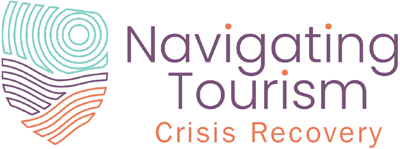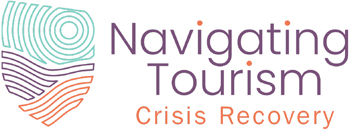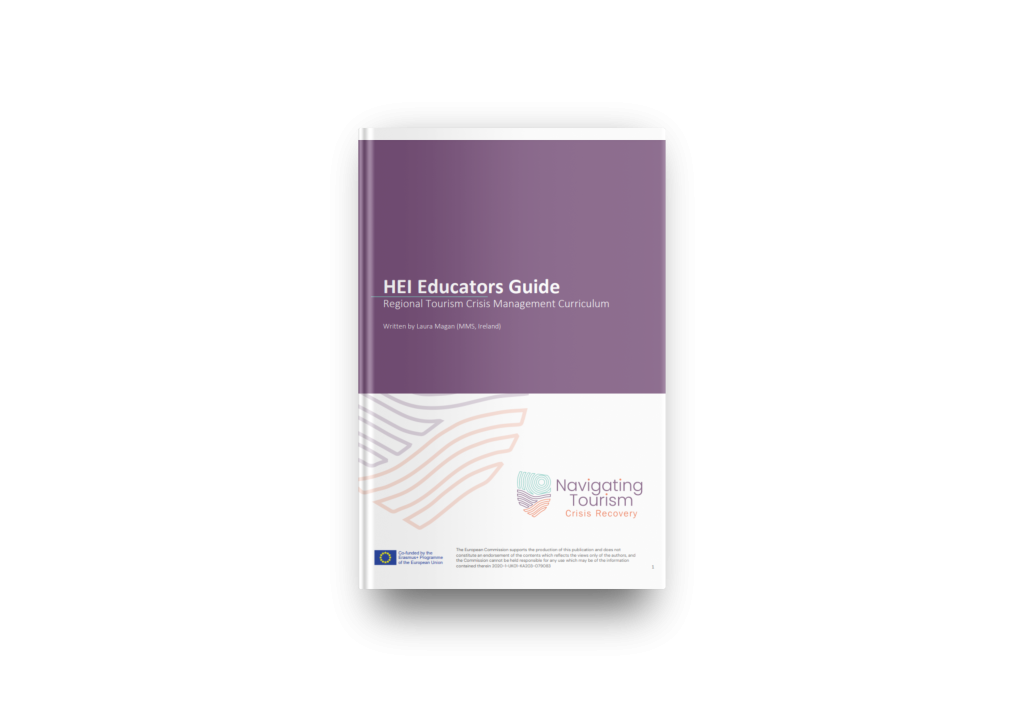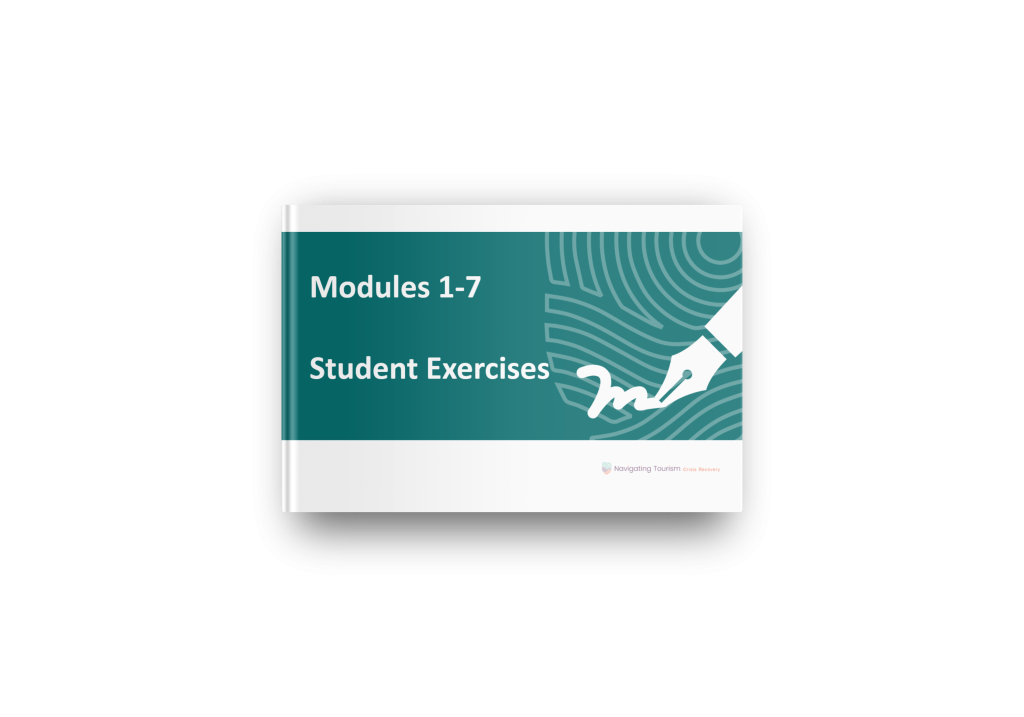HEI Regional Tourism Crisis Curriculum
Welcome to TC NAV HEI Curriculum
Regional Tourism Crisis Management
The Navigating Tourism through Crisis Recovery Curriculum aims to equip HEI (Higher Education) educators and students with an essential methodical approach to regional tourism crisis management.
“To accommodate lecturers’ and educators’ needs these modules can be shortened, modified, shortened, or combined to however you think will work best for your student learning. Please respect copyrights, branding, and acknowledgment that these resources and materials were developed by Navigating Tourism Crisis Recovery with the funding and support of the Erasmus+ European Commission.”
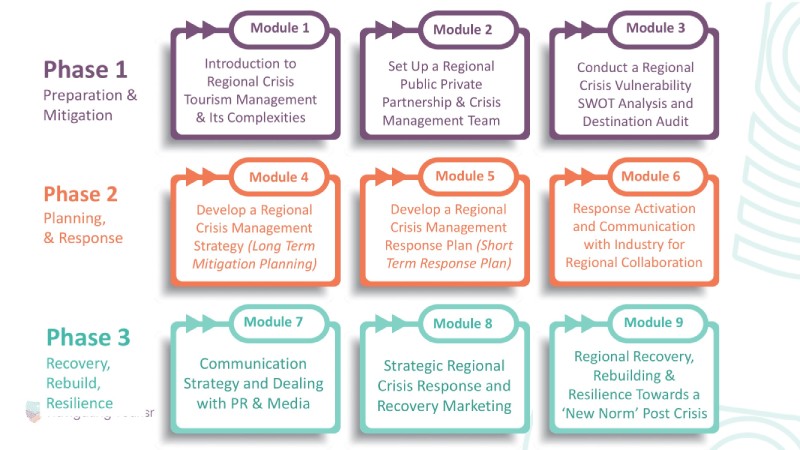
The COVID-19 pandemic was the catalyst for developing this TC NAV HEI Curriculum. On 12 March 2020, COVID-19 was officially declared a global pandemic by the World Health Organization (WHO) bringing significant social, economic, and environmental costs to the tourism sector globally. Among all industries, the tourism industry was one of the most severely impacted. As the pandemic spread, many countries and cities closed their borders.
In 2020, international tourism arrivals declined by 93 per cent compared with 2019 (Tourism International, 2021). The pandemic also brought significant changes in consumers’ requirements, and behaviors posing great challenges to tourism destination managers and tourism business operators (Sigala, 2020).
The Navigating Tourism Crisis Recovery RTCM Curriculum was designed to assist HEI educators’ and students’ understanding of how regional tourism destinations can not only recover from future potential crises but, if possible, mitigate the impact, or even better prevent the crisis from happening in the first place. The TCNAV RTCM HEI Curriculum is made up of 9 Modules designed to educate students who want to learn about regional tourism crisis management over the 3 key crisis phases Preparation, Response, and Recovery.
The TC NAV RTCM Curriculum consists of 9 Modules that HEI educators can incorporate into their teaching of the student community (and indeed wider regional stakeholders) to;
Introduction to Navigating Tourism Crisis Recovery HEI Curriculum
Module 1: Introduction to Regional Tourism Crisis Management and its Complexities in a European Context
Module 1: Introduction to Regional Tourism Crisis Management and its Complexities in a European Context
Module 2: Setting up a Public-private Sector Partnership & Tourism Crisis Management Team
Module 2: Setting up a Public-private Sector Partnership & Tourism Crisis Management Team
Module 3: Conduct a Regional Crisis Risk Assessment, SWOT Analysis and Regional Crisis Audit
Module 3: Conduct a Regional Crisis Risk Assessment, SWOT Analysis and Regional Crisis Audit
Module 4: Develop a Long-Term Crisis Management Strategy to Prevent and Mitigate a Crisis
Module 4: Develop a Long-Term Crisis Management Strategy to Prevent and Mitigate a Crisis
Module 5: Develop a Short-Term Crisis Management Plan for Immediate Response and Recovery
Module 5: Develop a Short-Term Crisis Management Plan for Immediate Response and Recovery
Module 6: Response Activation and Industry Communication for Cohesive Collaboration
Module 6: Response Activation and Industry Communication for Cohesive Collaboration
Module 7: Communication Strategy and dealing with PR and Media
Module 7: Communication Strategy and dealing with PR and Media
Module 8: Strategic Marketing for Regional Crisis Response and Recovery
Module 8: Strategic Marketing for Regional Crisis Response and Recovery
Module 9: Regional Tourism Crisis Recovery, Rebuilding & Resilience Towards a ‘New Norm’ Post Crisis
Module 9: Regional Tourism Crisis Recovery, Rebuilding & Resilience Towards a ‘New Norm’ Post Crisis
The Learning via Navigating Tourism Crisis Recovery HEI Curriculum
HEI students will learn about regional tourism crisis preparation, prevention, mitigation, response, and recovery management practices using different methods, approaches, models, practices, and theories. Curriculum learning is supported by sample templates, practical and research exercises for deeper thinking and understanding, case studies, instructional units, resources, and research material.
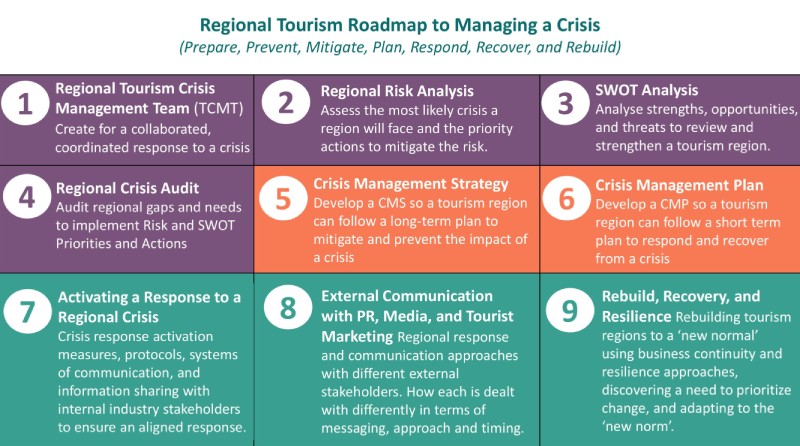
European tourism regions will enhance their resilience, preparation, and recovery strategies and plans so that they can be better protected from a future crisis. The TC NAV Curriculum;
- Looks at the different applications of regional tourism crisis management strategies, and models delivered across diverse European and international relevant contexts
- Highlights key concepts demonstrated in real-life application scenarios and regional tourism case studies
- Demonstrates how to develop a series of regional tourism crisis-specific tools, strategies and plans need to assist a region to protect and rebuild its brand and reputation
- The course also discusses approaches to reopening, recovery, rebuilding, and resilience focusing on timely post-pandemic scenarios.
